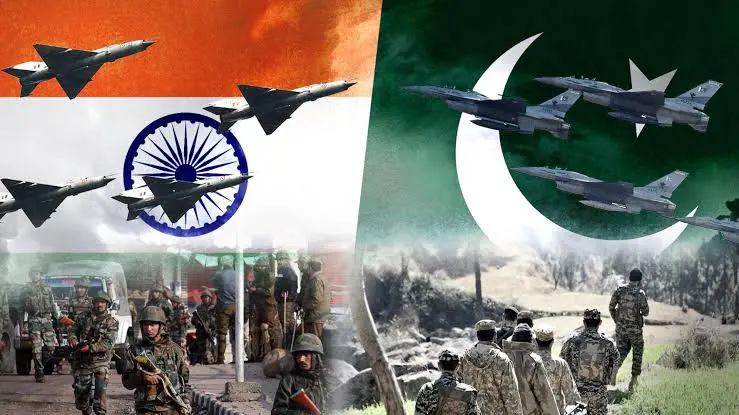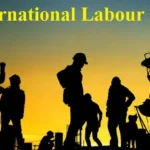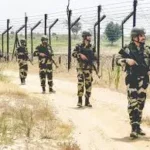This article provides a comprehensive analysis of India Pakistan current relations, exploring recent conflicts such as the 2025 Pahalgam attack, ongoing diplomatic challenges, and the impact on economic and cultural ties. It offers insights into the historical context, the Kashmir dispute, and potential pathways to peace, tailored for a Pakistani audience.

Latest on India Pakistan Current Relations: Tensions, Conflicts, and Hope for Peace
The relationship between India and Pakistan has been characterized by complexity and tension since their independence in 1947. Central to India Pakistan current relations is the unresolved dispute over Jammu and Kashmir, which has historically led to conflicts and continues to influence bilateral dynamics. Recent events, such as the April 2025 Pahalgam attack, have further strained ties, resulting in diplomatic and economic retaliations. This article examines the historical context, current status, diplomatic efforts, and economic and cultural dimensions of India Pakistan current relations, providing a detailed perspective for a Pakistani audience. By understanding these dynamics, readers can appreciate the challenges and potential for peace in South Asia.
Also Read
- Celebrating the Labour Day Holiday in Pakistan: A Tribute to Workers
- ACP Pradyuman: The Legendary CID Officer Loved Across India and Pakistan
- Exploring the BSF: The Backbone of India’s Border Security with Bangladesh
- EOBI Pension Latest Update 2025: Current Status and Future Expectations
- The Pakistan India Wars: A Comprehensive Overview of Historical Conflicts
Historical Background
The partition of British India in 1947 created the sovereign nations of India and Pakistan, accompanied by significant violence and displacement of millions. The princely state of Jammu and Kashmir became a focal point of contention, as its Hindu ruler acceded to India despite a Muslim-majority population, leading to the first Indo-Pakistani war (1947-1948). This conflict established the Line of Control (LOC), dividing Kashmir between the two nations.
Subsequent wars in 1965, 1971, and 1999 (Kargil War) further shaped India Pakistan current relations. The 1971 war, resulting in the creation of Bangladesh from East Pakistan, was a significant geopolitical shift. The Kashmir dispute remains the primary source of tension, influencing bilateral relations and regional stability.
Current Status
India Pakistan current relations have experienced a significant downturn in recent years, particularly following India’s revocation of Article 370 in 2019, which removed Jammu and Kashmir’s special status. Pakistan condemned this move, leading to increased ceasefire violations along the LOC.
The most recent escalation occurred on April 22, 2025, when the Pahalgam attack in Indian-administered Jammu and Kashmir killed 26 people, primarily tourists, and injured 17. The Resistance Front (TRF), an offshoot of the Pakistan-based Lashkar-e-Taiba, claimed responsibility (Reuters). India accused Pakistan of facilitating cross-border terrorism, prompting severe retaliatory measures, including:
- Closing the main border crossing with Pakistan.
- Suspending the Indus Waters Treaty.
- Expelling Pakistani diplomats.
Pakistan denied these allegations and responded by suspending visas for Indian nationals, closing its airspace to Indian aircraft, expelling Indian diplomats, and suspending the Simla Agreement (Wikipedia). Both nations have reported intermittent small-arms fire across the LOC, raising concerns about further escalation (NPR).
| Event | Date | Details | Impact on Relations |
|---|---|---|---|
| Article 370 Revocation | August 2019 | India removed Jammu and Kashmir’s special status. | Increased tensions and ceasefire violations. |
| Pahalgam Attack | April 22, 2025 | 26 killed, 17 injured by TRF in Jammu and Kashmir. | Severe diplomatic fallout, suspension of treaties. |
| Diplomatic Retaliations | April 2025 | Expulsion of diplomats, suspension of visas, and trade. | Further deterioration of India Pakistan current relations. |
Diplomatic Efforts
Historically, India and Pakistan have engaged in diplomatic initiatives to mitigate tensions, including the Simla Agreement of 1972 and the Lahore Declaration of 1999. These agreements aimed to foster peace and resolve disputes bilaterally. However, India Pakistan current relations have seen limited success in sustaining these efforts due to mutual distrust and recurring conflicts.
Following the 2025 Pahalgam attack, diplomatic channels have significantly deteriorated. India’s suspension of the Indus Waters Treaty and Pakistan’s suspension of the Simla Agreement mark a low point in bilateral relations. The international community, including the United Nations and the United States, has called for restraint. The UN urged both nations to exercise “maximum restraint” (Radio Free Europe), while U.S. analysts noted limited American intervention due to global commitments (Reuters). The absence of high-level bilateral talks since 2016 underscores the current diplomatic impasse.
Economic and Cultural Ties
Despite political tensions, India and Pakistan share linguistic, cultural, and economic links. Historically, trade has occurred across the border, particularly through the Attari-Wagah crossing. However, India Pakistan current relations have negatively impacted these ties. Following the 2025 diplomatic crisis, Pakistan suspended all trade with India, exacerbating economic losses (Wikipedia).
Culturally, both nations share a rich heritage, including Urdu and Hindi languages, music, and cuisine. However, political tensions have curtailed cultural exchanges, such as cricket matches, which were once a significant avenue for goodwill. The Kartarpur Corridor, facilitating Sikh pilgrims, remains a rare positive link (Wikipedia). These shared ties suggest potential for future cooperation if political barriers are addressed.
Frequently Asked Questions
- What is the primary issue affecting India Pakistan current relations?
The Kashmir dispute is the central issue, driving tensions and conflicts since 1947. - Are there ongoing peace talks between India and Pakistan?
Currently, no significant peace talks are underway, with diplomatic channels severely strained post-2025 Pahalgam attack. - How does the Kashmir issue impact India Pakistan current relations?
The Kashmir dispute fuels mutual distrust, ceasefire violations, and accusations of terrorism, significantly hindering bilateral relations. - What role does terrorism play in India Pakistan current relations?
Allegations of cross-border terrorism, particularly following attacks like Pahalgam, exacerbate tensions and derail diplomatic efforts.
Conclusion
India Pakistan current relations are at a critical juncture, marked by heightened tensions following the 2025 Pahalgam attack and subsequent diplomatic fallout. The Kashmir dispute remains the core issue, compounded by recent retaliatory measures such as the suspension of key treaties and trade. While shared cultural and economic ties offer a foundation for potential cooperation, achieving peace requires sustained diplomatic efforts and international mediation. This article has provided a comprehensive overview of India Pakistan current relations, highlighting the challenges and the enduring hope for a peaceful resolution in South Asia.
External Links
- India–Pakistan relations – Wikipedia
- Conflict Between India and Pakistan – CFR
- India-Pakistan relations – BBC News
- High Commission of India in Islamabad
- India-Pakistan Relations – Byjus
- 2025 India–Pakistan diplomatic crisis – Wikipedia
- India and Pakistan on Brink of Conflict – RFERL
- India-Pakistan Kashmir Attack – NPR
- US Urges Responsible Solution – Reuters
- Kashmir Resistance Group Attack – Reuters





